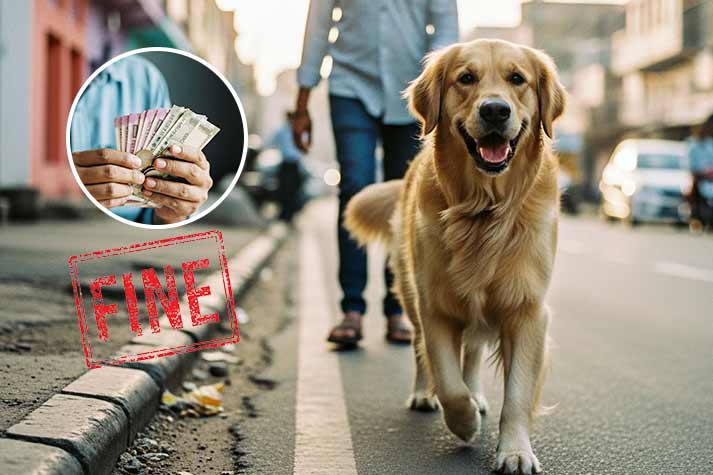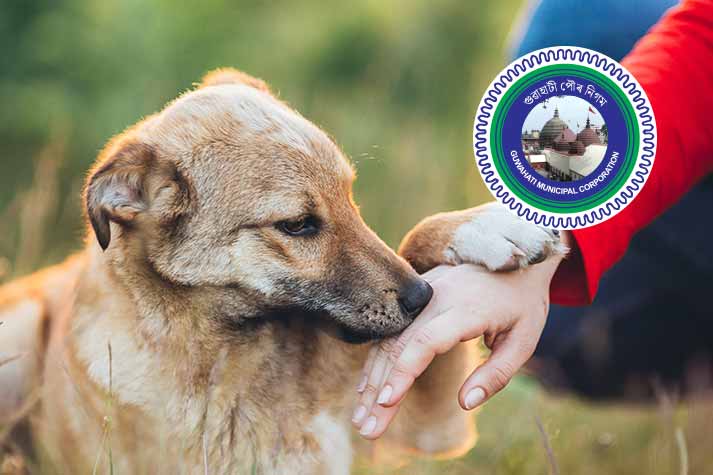
24 Jun
Chennai’s Stray Dog Crisis: Sterilization Halt Sparks Fears as Goa Shows the Way
Chennai: Chennai is facing a critical surge in its stray dog population after the Greater Chennai Corporation (GCC) paused Animal Birth Control (ABC) surgeries for three weeks. The suspension, attributed to maintenance work and revisions to the post-surgery diet for dogs, comes at a time when residents are increasingly alarmed by the rise in aggressive stray dog packs and the risk of dog bites and rabies.
A recent GCC survey revealed that Chennai is now home to at least 1.81 lakh stray dogs, with only 27% sterilized; leaving approximately 1.32 lakh fertile. The city’s stray dog numbers have more than tripled from 57,000 in 2018 to 1.81 lakh in 2024. Plans to expand sterilization efforts by opening 10 new ABC centres have not materialized, and existing facilities have been shut for maintenance.
Many neighborhoods, especially in the suburbs and densely populated areas, are reporting packs of aggressive stray dogs roaming freely. "We have not seen any dog-catching drive in the area. All we see is new puppies. Dogs are increasingly aggressive, and bites have been reported from our neighbourhood," said M Gnanaprakasam, a resident of Senniyamman Koil Street in Tondiarpet.
GCC officials say the pause in surgeries is based on recommendations from veterinary professionals posted at ABC centers by the Tamil Nadu Animal Welfare Board (TNAWB).
"They recommended better maintenance and dietary changes for the dogs. For instance, earlier packed foods were given, but the TNAWB recommended including cooked foods," said GCC Commissioner J Kumaragurubaran.
The board has advised palatable, watery foods such as cooked chicken and rice, in prescribed quantities, said Shruti Vinod Raj, a member of TNAWB. "In some pounds, milk and chapati were being given, but many dogs are lactose intolerant," she said. Dogs must be kept for five days after surgery, she said adding issues identified will be reported for corrective action.
Despite these measures, residents remain anxious. In January 2024, the GCC Commissioner announced plans to control the stray dog population through minimally-invasive laparoscopic surgeries. However, according to locals, there has been no progress. "If urgent action is not taken to control the population, this could become a disaster," said V Sandhya, a resident of Anna Nagar.
Currently, only about 15,000 to 16,000 of the 20,000 stray dogs caught annually are sterilized. At this rate, residents point out, it would take at least eight years to sterilize the existing stray dog population. Officials claim that five new ABC centers will open in a couple of months, with the rest operational by November.
"The number of kennels at existing centres will be increased from 100 to 200, and cages from 40 to 150. In each of the new centres, we plan to conduct around 30 sterilisation surgeries per day," said GCC Veterinary Officer Dr J Kamal Hussain.
A Path Forward
While Chennai grapples with this crisis, Goa has set a national example by retaining its rabies-free status since 2017; a feat achieved through a sustained partnership between government agencies and NGOs.
According to Karlette Anne Fernandes, Director, Companion Animal Management, World Veterinary Service, the groundwork was laid in 2013 through the launch of ‘Mission Rabies' in Goa. Initially started by a non-government organisation, the initiative soon gained critical backing from the Health and Family Welfare and Animal Husbandry Departments. Community participation played a crucial role in ensuring its success, she added.
Key measures under the programme included mass vaccination of stray dogs and widespread implementation of animal birth control surgeries. Veterinary teams identified and treated strays across the state, ensuring no locality was left uncovered. Anti-rabies vaccines were stocked in all primary health centres to improve access, particularly in rural areas where dog bite cases were more frequent and often fatal due to lack of timely treatment.
One of the challenges in other states has been the irregularity of annual vaccinations post-sterilisation. In contrast, Goa maintained its yearly vaccination drives without interruption, which proved vital in achieving and maintaining its rabies-free status.
Authorities have now shifted focus to monitoring pets entering Goa from other states via road, rail, or air. These animals are tracked and vaccinated, with support from their owners. This continued vigilance reflects a robust system built on vaccination, awareness, and compassion.
Goa's comprehensive approach has emerged as a model for the rest of the country. With rabies still claiming thousands of lives annually in India, experts suggest that replicating Goa's strategy across states could be the key to eliminating the deadly disease nationwide.






AUTHOR’S BIO
Carry My Pet
Passionate pet enthusiasts and globetrotters, dedicated to easing furry friends' journeys worldwide. Penning tales of compassion at CarryMyPet, where every relocation is a tail-wagging adventure.